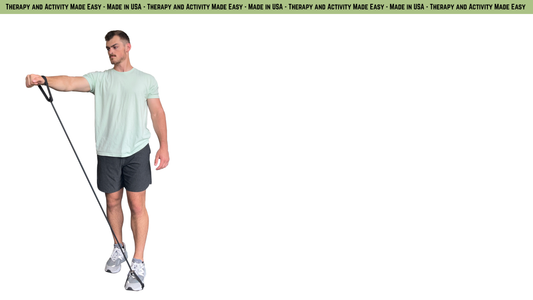
8 Simple Daily Habits for Managing Chronic Pain
Introduction
Living with chronic pain can feel like an uphill battle, affecting every aspect of life from physical activities to emotional well-being. Whether it's due to an injury, illness, or an underlying condition, finding relief can seem elusive. While medical treatments play a crucial role, incorporating simple daily habits into your routine can also make a significant difference. Here are eight practical habits that can help you better manage chronic pain and improve your quality of life.
1. Prioritize Quality Sleep
It's no secret that lack of sleep can exacerbate pain levels and diminish overall health. Establishing a consistent sleep schedule and creating a restful environment can promote better sleep quality. Consider limiting screen time before bed, investing in a comfortable mattress and pillows, and practicing relaxation techniques such as deep breathing or meditation to ease into a peaceful slumber.
2. Stay Active within Limits
Physical activity might seem daunting when you're in pain, but gentle exercises can actually alleviate discomfort by improving circulation and releasing endorphins, the body's natural painkillers. Consult with a healthcare professional to develop a tailored exercise plan that suits your condition and abilities. Whether it's walking, swimming, or yoga, finding enjoyable activities that keep you moving is key.
3. Mindful Eating
Your diet can play a significant role in managing chronic pain. Certain foods, such as those high in refined sugars and trans fats, can contribute to inflammation and worsen symptoms. Opt for a balanced diet rich in fruits, vegetables, lean proteins, and whole grains, which can help reduce inflammation and support overall health. Additionally, staying hydrated is essential for maintaining optimal bodily functions and minimizing pain.
4. Practice Stress Management
Stress can exacerbate pain and lead to a vicious cycle of discomfort. Incorporating stress-relieving techniques into your daily routine, such as deep breathing exercises, progressive muscle relaxation, or mindfulness meditation, can help calm the mind and soothe the body. Finding activities that bring joy and relaxation, whether it's reading, gardening, or spending time with loved ones, can also alleviate stress and improve mood.
5. Maintain Good Posture
Poor posture can strain muscles and exacerbate pain, especially in the neck, shoulders, and back. Being mindful of your posture throughout the day and making ergonomic adjustments to your workspace or seating can help alleviate unnecessary strain on your body. Consider using supportive cushions or ergonomic chairs to promote proper alignment and reduce discomfort during prolonged sitting.
6. Pace Yourself
Learning to pace yourself is essential for managing chronic pain and avoiding flare-ups. While it's tempting to push through pain during periods of relief, overexertion can lead to increased discomfort in the long run. Listen to your body's cues and break tasks into manageable segments, taking frequent breaks to rest and recharge. Prioritize essential activities and delegate tasks when possible to conserve energy and minimize strain.
7. Stay Connected
Living with chronic pain can feel isolating, but staying connected with friends, family, and support groups can provide invaluable emotional support and encouragement. Surround yourself with understanding and empathetic individuals who can offer a listening ear or a helping hand when needed. Sharing experiences and coping strategies with others who are going through similar challenges can foster a sense of community and empowerment.
8. Mind-Body Techniques
Incorporating mind-body techniques such as guided imagery, biofeedback, or acupuncture can complement traditional pain management strategies and promote holistic healing. These practices focus on harnessing the power of the mind to influence physical well-being, helping you regain a sense of control over your body and pain levels. Experiment with different techniques to find what works best for you and incorporate them into your daily routine for lasting relief.
Conclusion
In conclusion, managing chronic pain requires a multifaceted approach that addresses physical, emotional, and lifestyle factors. By incorporating these eight simple daily habits into your routine, you can take proactive steps towards alleviating discomfort and improving your overall quality of life. Remember to be patient with yourself and celebrate small victories along the way. With dedication and perseverance, you can find relief and reclaim control over your health and well-being.



